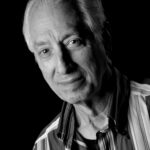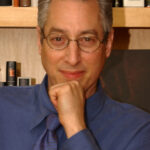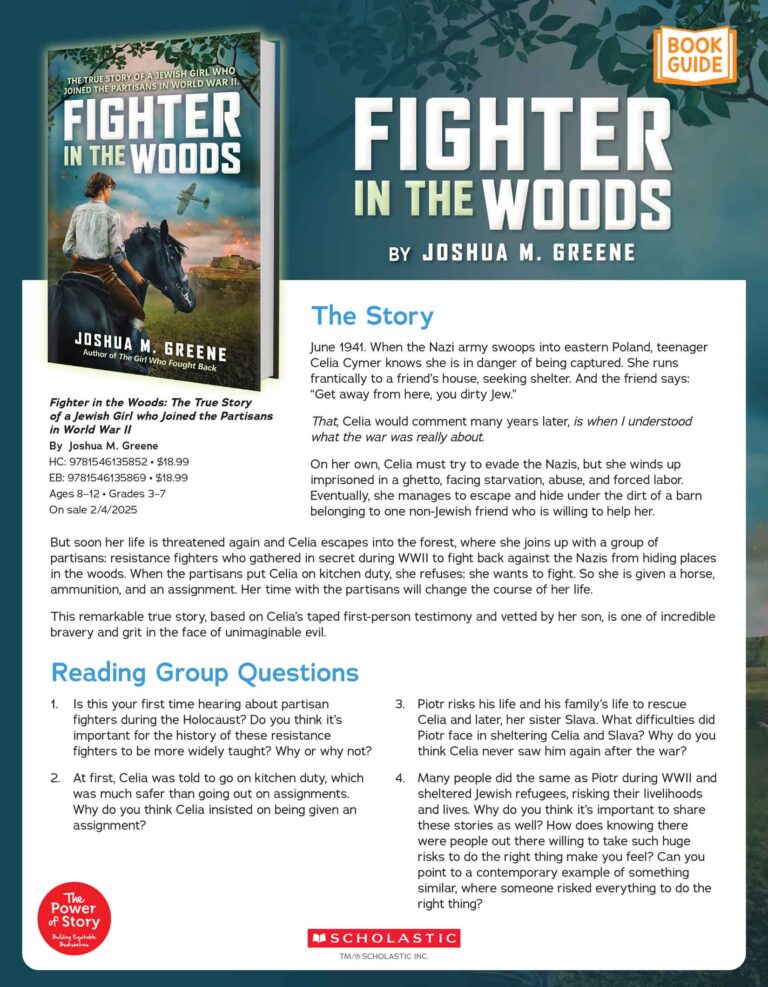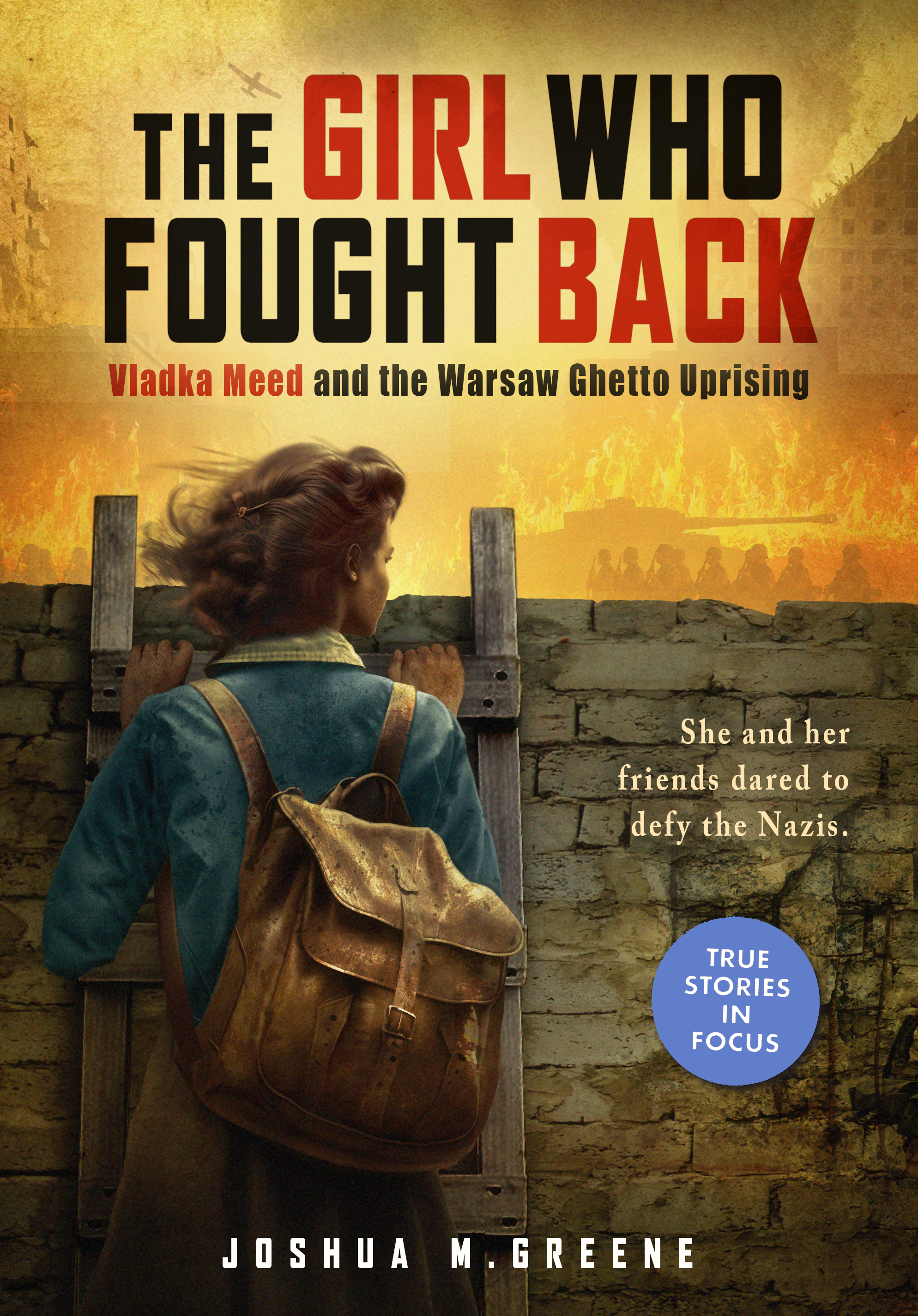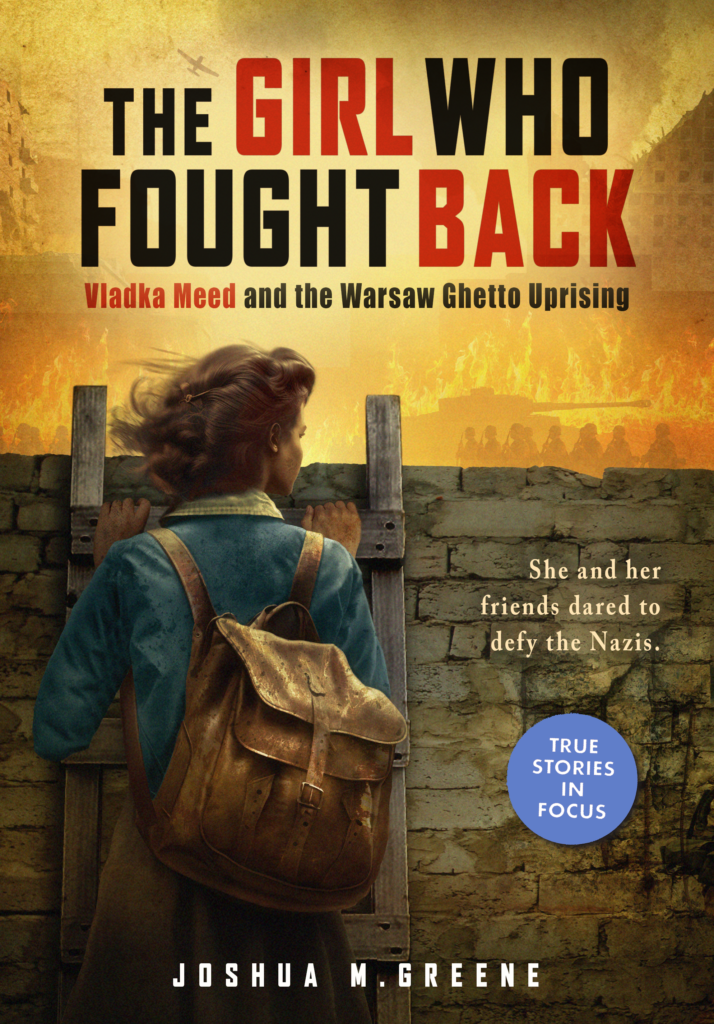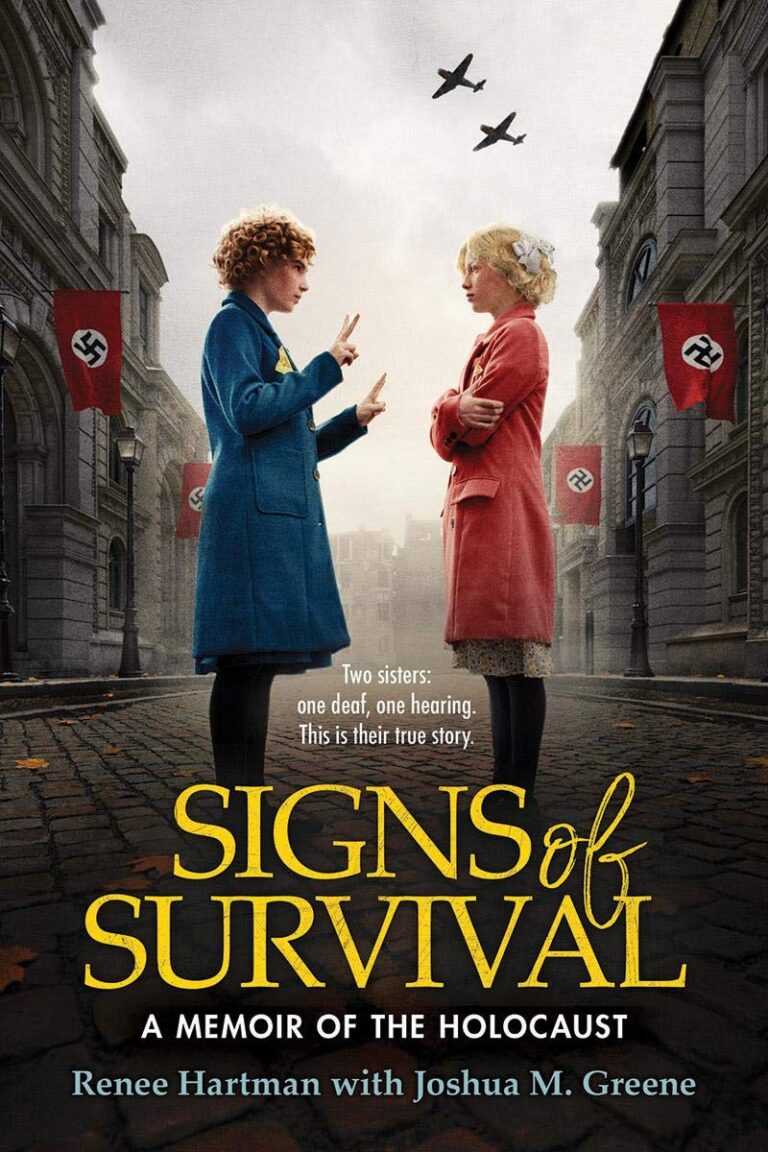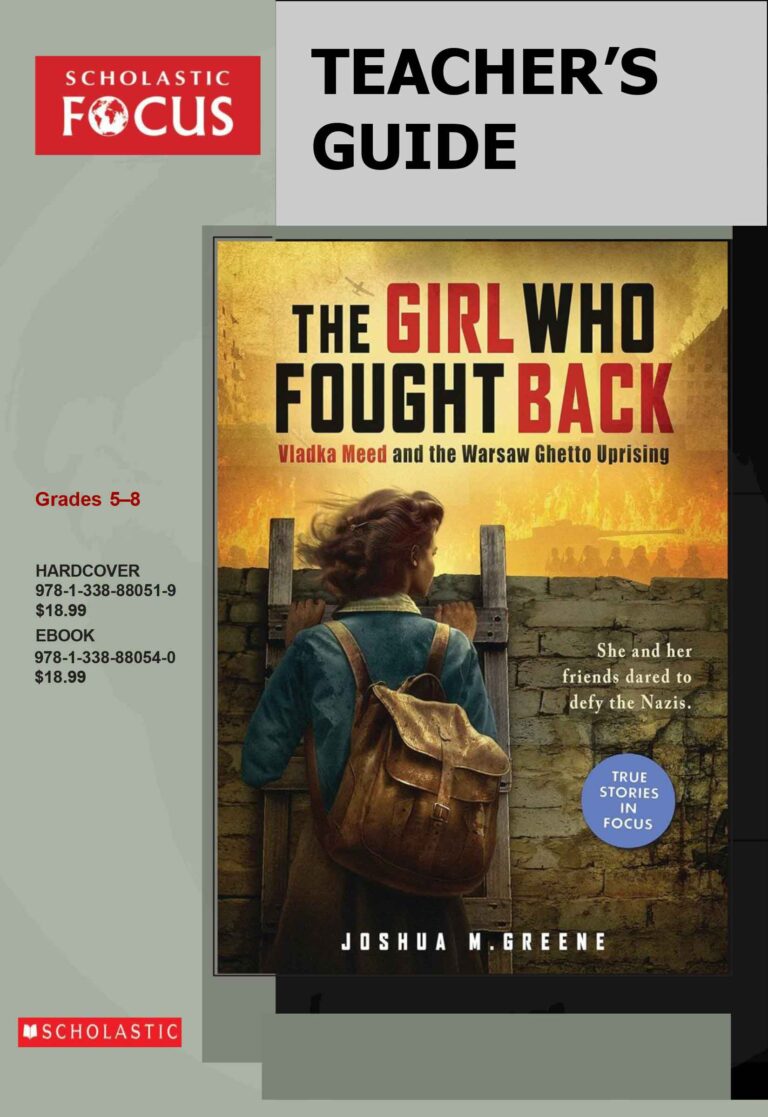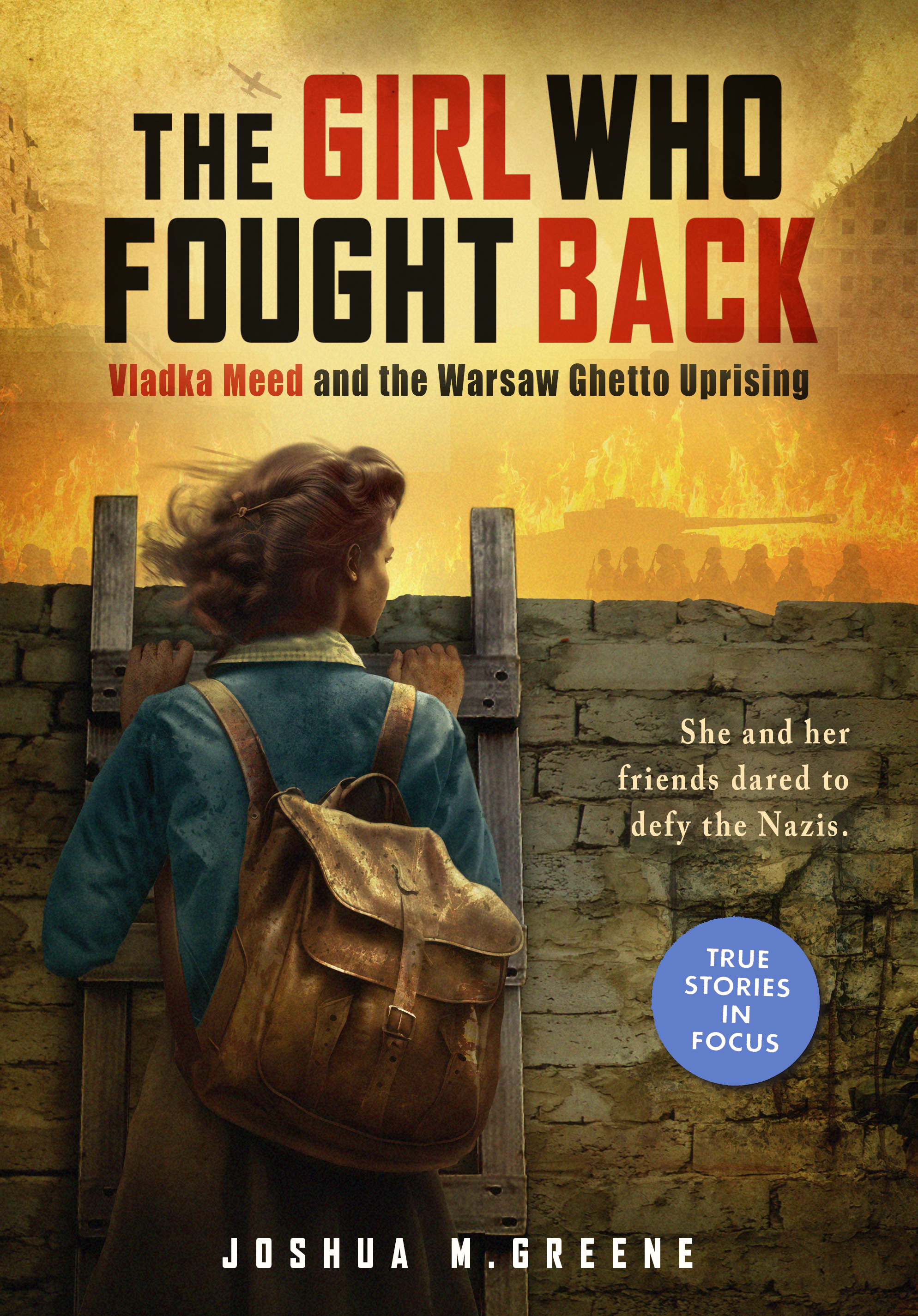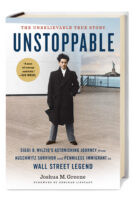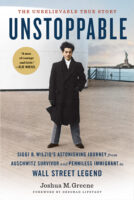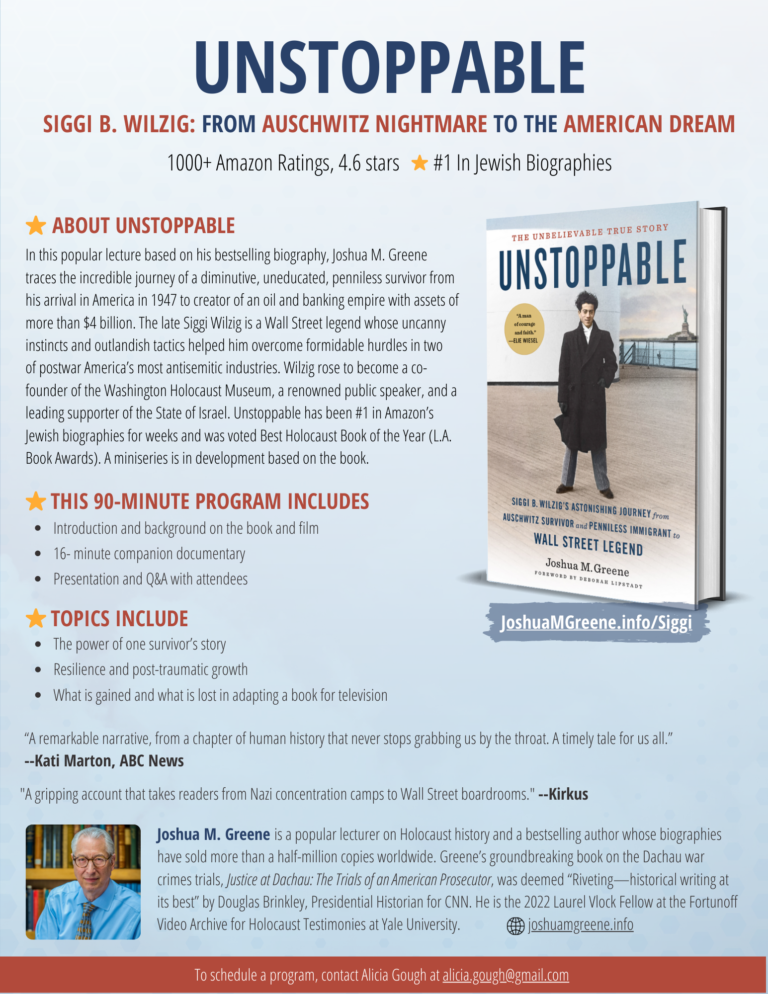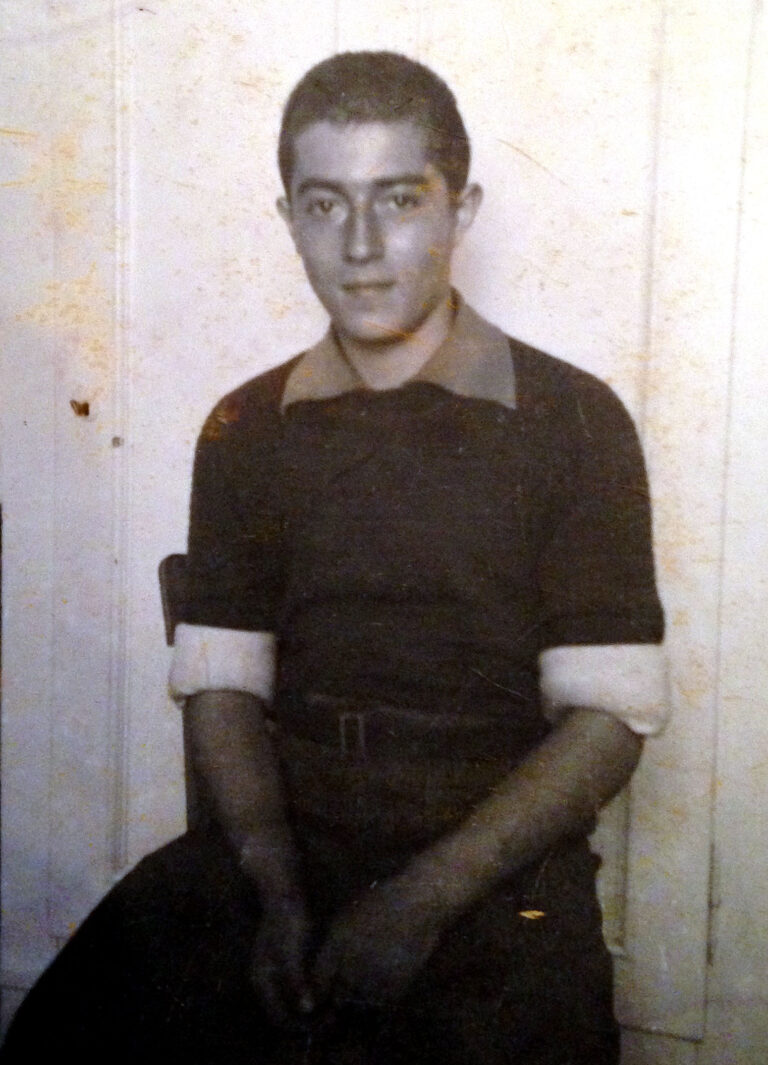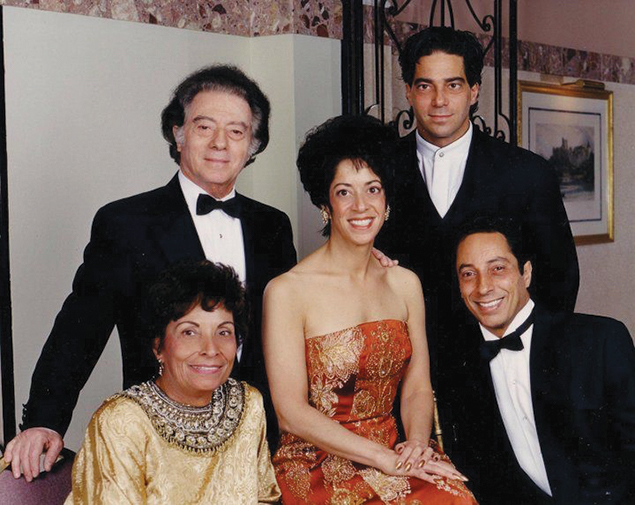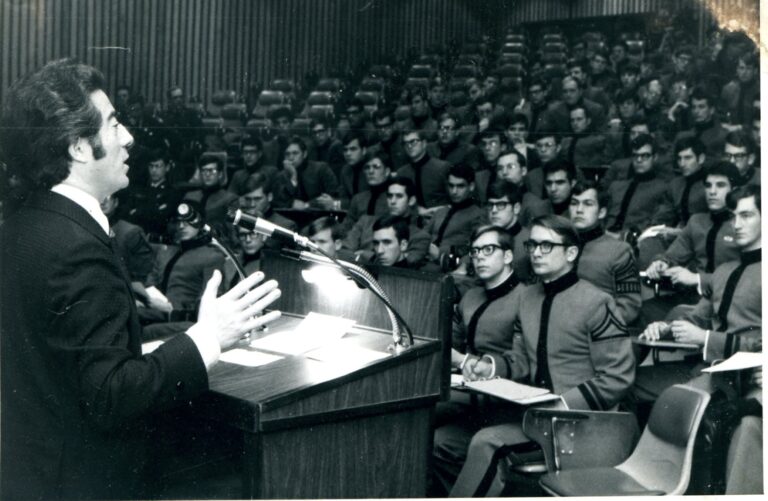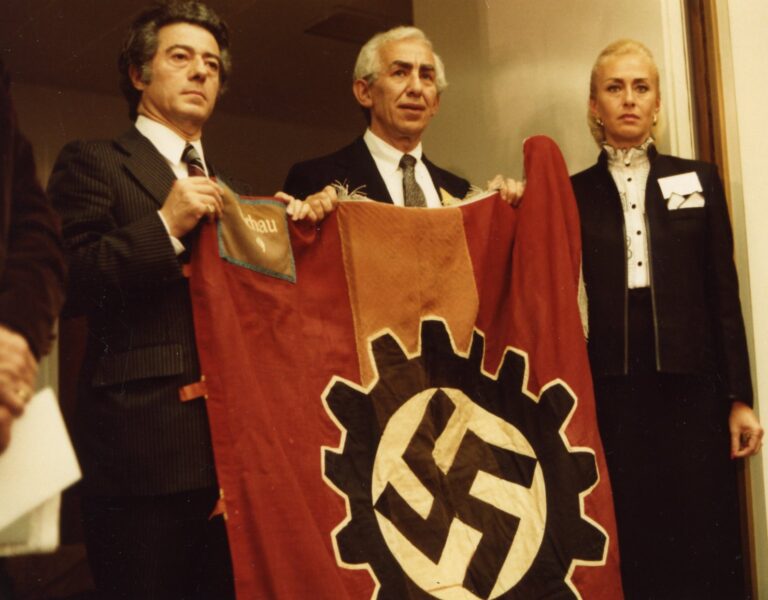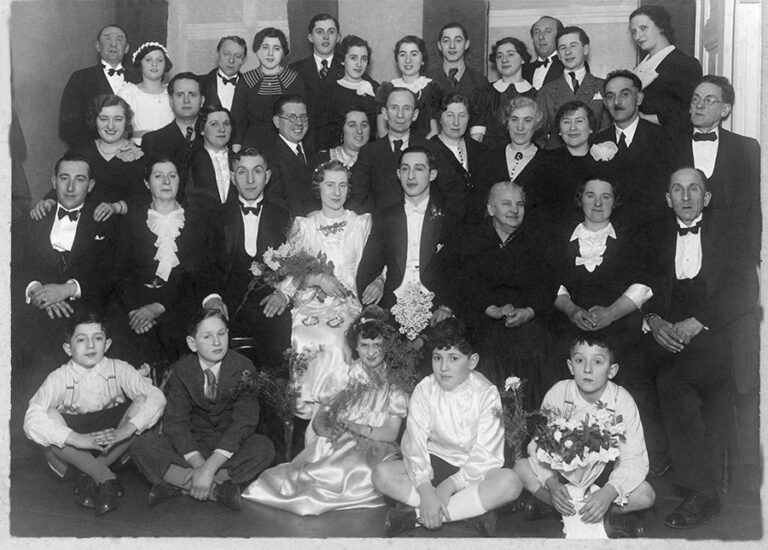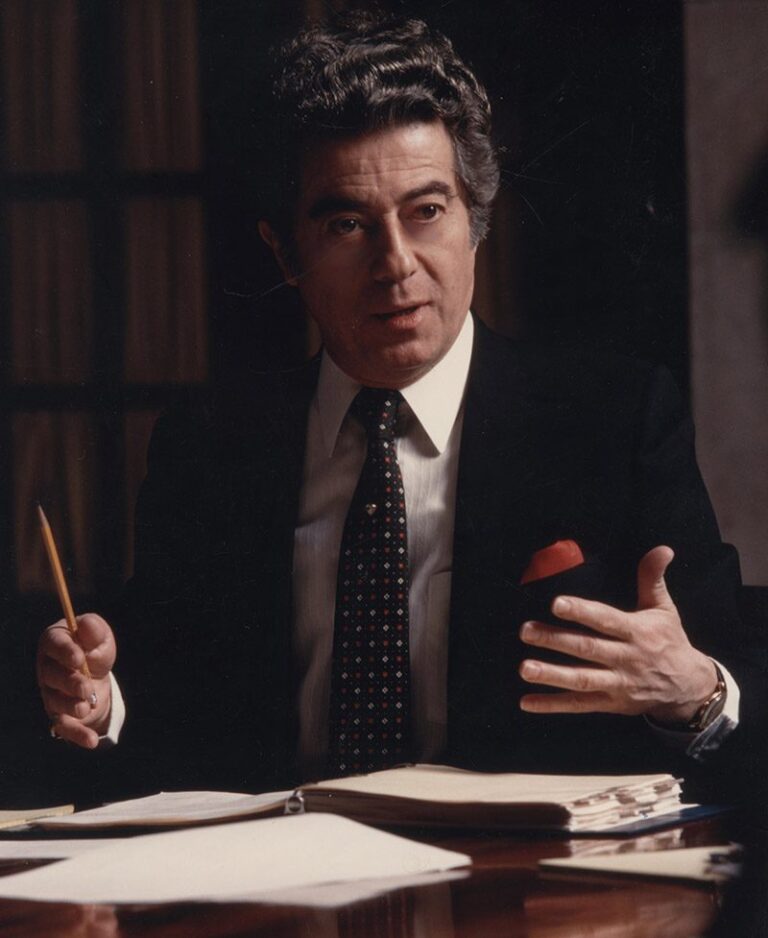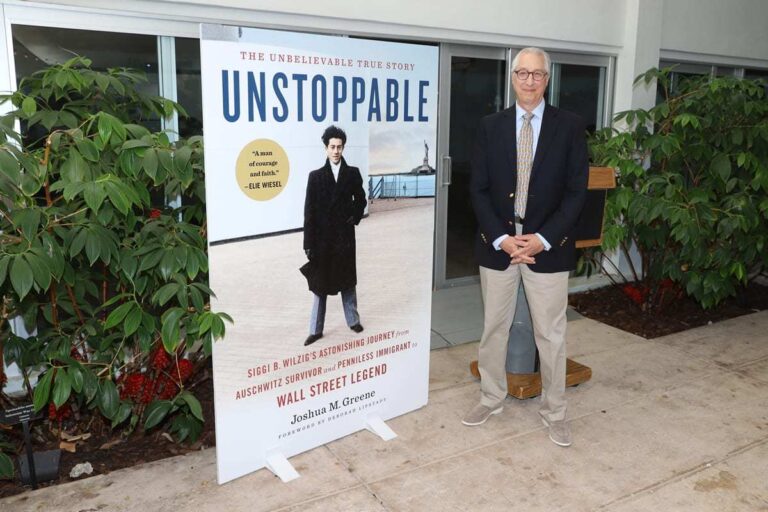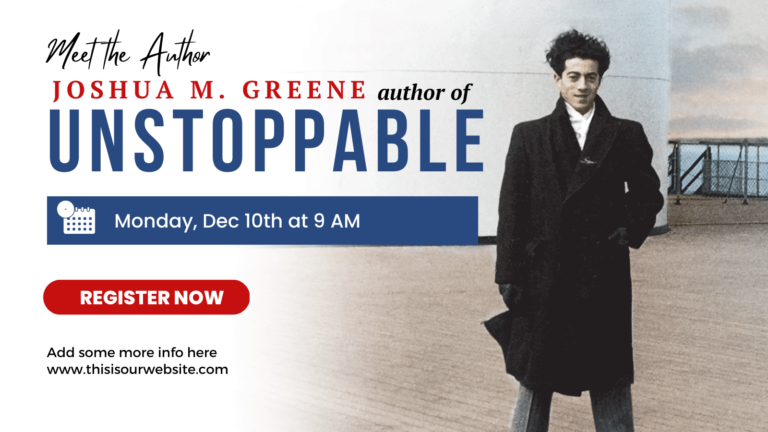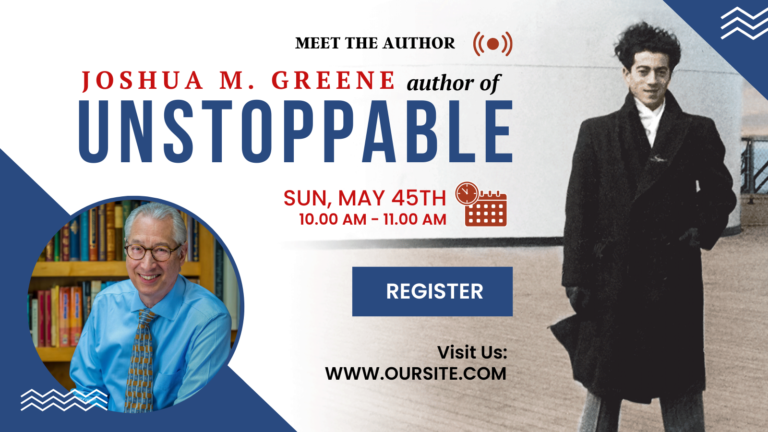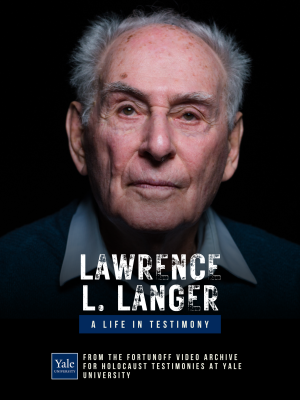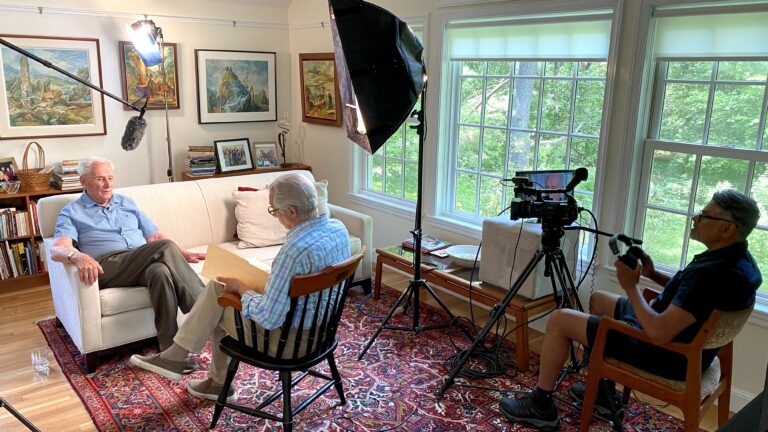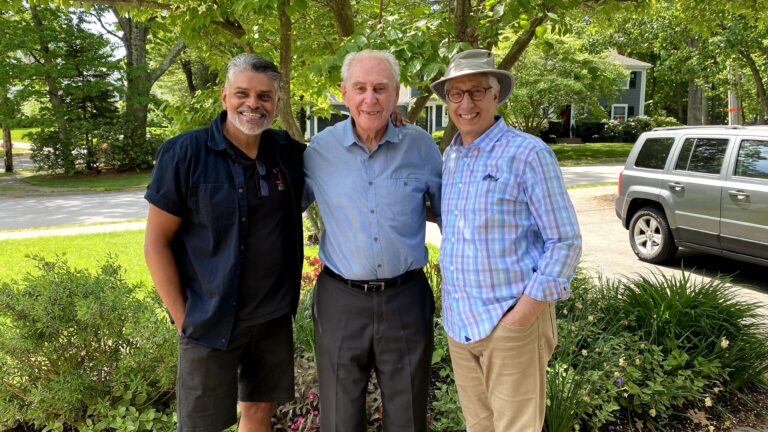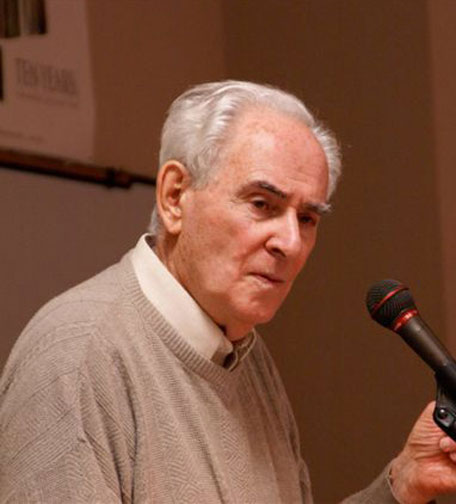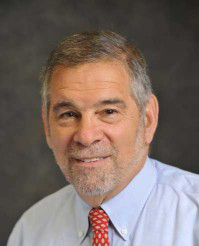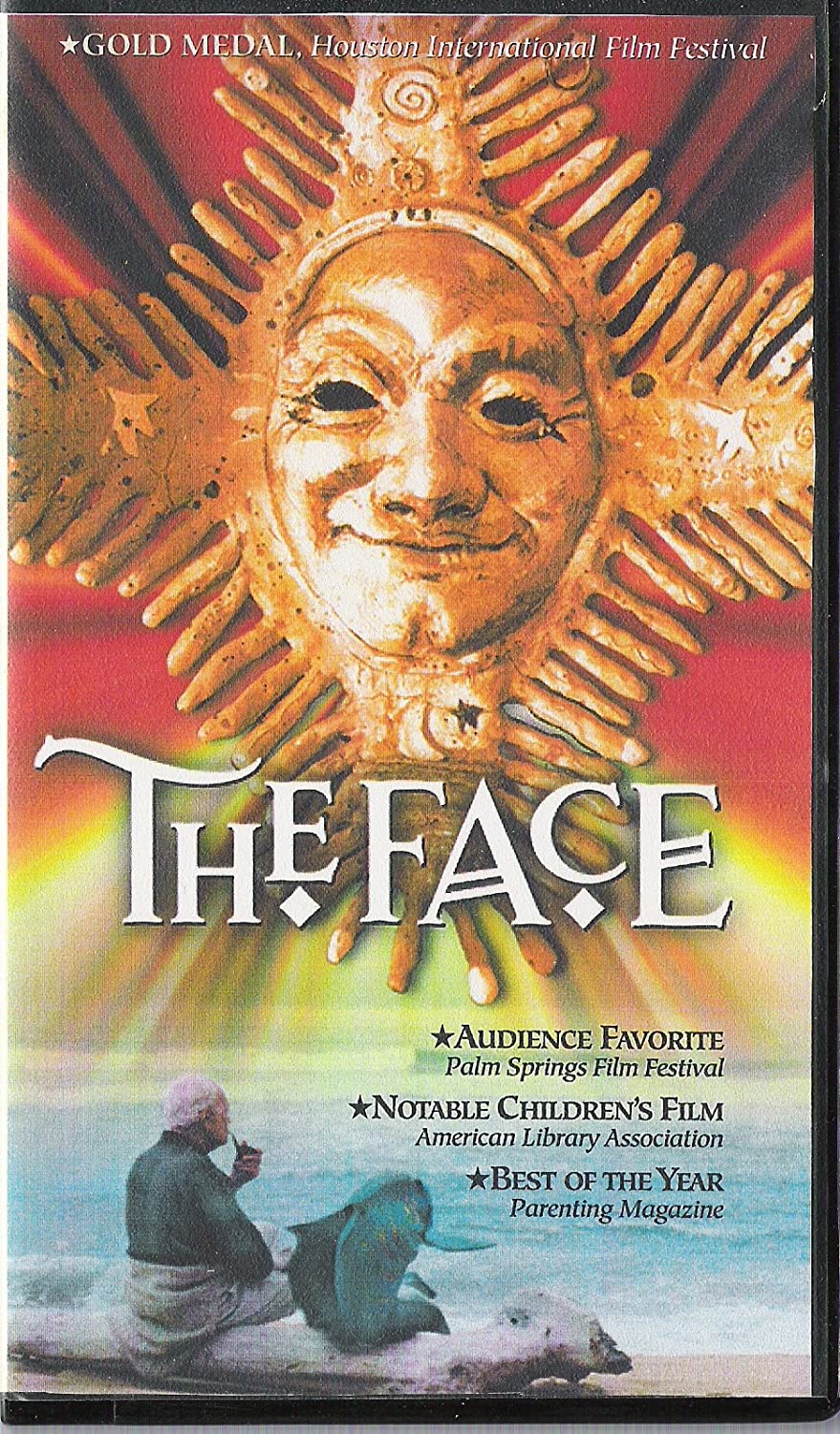FIGHTER IN THE WOODS
Joshua M. Greene
Bios
Links
Web: JoshuaMGreene.info
Twitter: @joshuamgreene
YouTube: www.youtube.com/@joshuamgreene
The Book
Book INFO
Title: Fighter In The Woods
Author: Joshua M. Greene
Publication Date: February 4, 2025
Publisher: Scholastic Focus
ISBN: print ISBN 978-1546135852
Page Count: 160
Available In: hardback
Recommended Age: 8 – 12 years
Grade Level: 3 – 7
Book summaries & Jacket Copy
The year was 1941, and Nazi Germany was bombing Poland. Celia
Kassow, a young Jewish girl, knew she was in danger of being seized by
the Nazis, so she ran to seek shelter at a Polish classmate’s house. The
classmate’s response?
“Get away from here, you dirty Jew.”
Celia
and her family, like all the Jewish families in their town, were then
imprisoned in a Nazi ghetto, facing daily starvation and torture. Most
of Celia’s family was murdered there, but a different Polish classmate
of Celia’s, a boy who had a crush on her, helped Celia escape to his
family’s farm, and eventually, into the woods to join the Soviet
partisans.
The partisans were resistance fighters who
gathered in secret during WWII to fight back against the Axis powers by
attacking German garrisons and blowing up trains. When Celia joined
them, the other partisans — mostly young men — wanted to put her on
kitchen duty, but Celia refused and asked to be put on patrol. She was
given a horse, ammunition, and an assignment.
Celia
survived the war fighting with the partisans. After the war, she would
go on to get married, have children, and immigrate to the United States,
where she lived out her days assisting other immigrants and raising her
family.
Her true story, based on first-person
testimony and vetted by Celia’s son, is one of incredible bravery and
grit in the face of unimaginable evil.
Coming soon
Coming soon
Promotional assets
BOOK TRAILER
The true story of a Jewish girl who joined the partisans in World War II.
Photos
